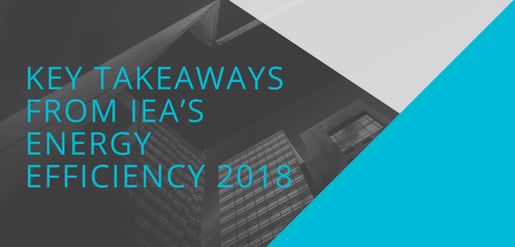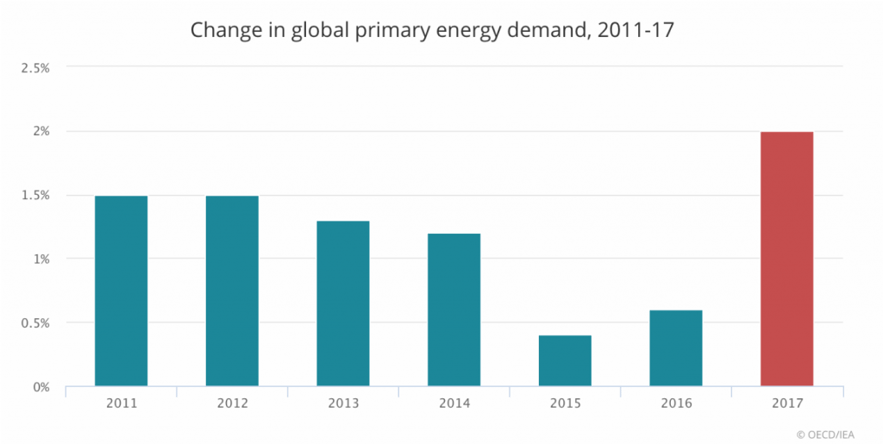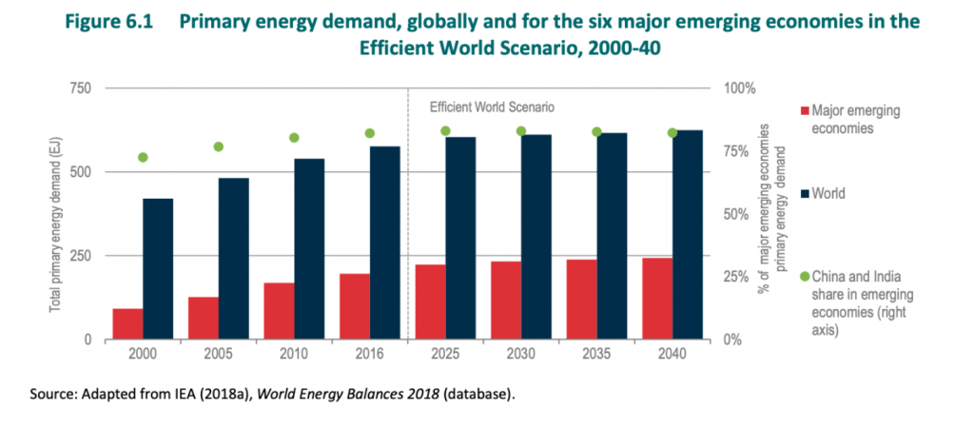 Last month, the International Energy Agency (IEA) released a report, Energy Efficiency 2018, in which they examined the current state of energy efficiency across the globe. Additionally, they took a look at where energy efficiency is heading over the next twenty years and what more needs to be done to maximize the benefits. The IEA notes the incredible impact of energy efficiency thus far, while also recognizing that so much more needs to be done by all parties to maximize its potential. Since 2000, 12% of final energy usage across the globe has been negated due to improvements in energy efficiency. This shows just how powerful energy efficiency can be in keeping worldwide energy usage down, which has benefits that go far beyond saving money on an electric bill, including reducing greenhouse gas emissions and cutting air pollutants.
Last month, the International Energy Agency (IEA) released a report, Energy Efficiency 2018, in which they examined the current state of energy efficiency across the globe. Additionally, they took a look at where energy efficiency is heading over the next twenty years and what more needs to be done to maximize the benefits. The IEA notes the incredible impact of energy efficiency thus far, while also recognizing that so much more needs to be done by all parties to maximize its potential. Since 2000, 12% of final energy usage across the globe has been negated due to improvements in energy efficiency. This shows just how powerful energy efficiency can be in keeping worldwide energy usage down, which has benefits that go far beyond saving money on an electric bill, including reducing greenhouse gas emissions and cutting air pollutants.
As the energy demand rapidly increases worldwide, due in large part to emerging economies, energy efficiency is a necessary tool to help offset that additional energy usage. Energy efficiency helps reduce the impact that major economic development would typically have on energy usage.
While energy efficiency investment has continued to grow, the global energy demand has continued to grow with it. Energy efficiency has helped offset that to a degree, but not enough to stop worldwide energy usage from increasing. As outlined in the chart below, global energy demand saw its largest net increase this decade.

The IEA identifies six countries as major emerging economies -- Brazil, China, India, Indonesia, Mexico, and South Africa. These six countries currently account for a third of global primary energy demand. The collective energy demand of these six countries is projected to increase by 45% between now and 2040, but the IEA claims this number could be reduced to 24% if energy-efficient measures were adopted.

Energy efficiency has already saved significant energy usage in these emerging economies, saving 10% of final energy usage in these countries alone. Much like the worldwide energy usage scenario, demand is growing faster than energy efficiency can currently keep up with.
Expansion in policy coverage is a key component in the growing role of energy efficiency, both in emerging economies and in countries throughout the world. Mandatory policies requiring installation of energy-efficient measures drive widespread adoption.
Investment in energy efficiency is necessary to maximize the benefits and help slow the increasing energy usage worldwide. In order to recognize all the potential of energy efficiency, annual investment will need to double by 2025 and double again between 2025 and 2040, reaching $1.3 trillion per year in investment. The IEA was quick to note that investment in energy efficiency is cost-effective and ultimately saves money via energy savings and additional economic benefits.
The IEA sees opportunities for population to grow by 20%, for building space to increase by 60%, and for the global GDP to double with only a nominal increase in energy usage compared to what we’re using today. Energy efficiency will be a key driver of that scenario, but requires action starting today, mainly with mandatory energy policy and investment in energy-efficient measures.
See the full 'Energy Efficiency 2018' report here and learn more.
.png?width=500&name=2019%20e%20news%20spotlight%20logo%20(1).png)




